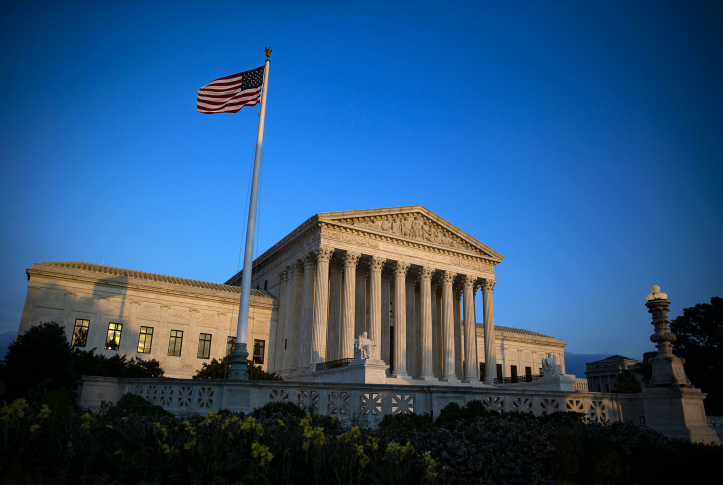On March 2, 2020, the U.S. Supreme Court accepted an appeal by 21 state attorneys general (AGs) led by California, in California v. Texas (formerly Texas v. United States), to decide whether the Affordable Care Act (ACA) should remain in place. The Court also accepted a cross-appeal by Texas and other states opposing the ACA asking that the entire law be invalidated. The Court will issue its decision either in the fall of 2020 or, more likely, in 2021.
A lawsuit challenging the law was originally brought by Texas, 19 other states, and two individuals in early 2018. They claimed that the 2017 Tax Cuts and Jobs Act had rendered the ACA’s individual mandate unconstitutional since the mandate could no longer be justified as a tax after the Act reduced the mandate’s penalty to zero. (The Supreme Court had upheld the mandate as a tax only in 2012.) The states further argued that the mandate was “essential” to the rest of the ACA, and the entire ACA was therefore invalid if the mandate was unconstitutional. Judge O’Connor, a Texas federal court judge, accepted these arguments in full in December 2018.
The U.S. Department of Justice (DOJ) refused to defend the ACA, which was defended instead by a coalition of Democratic AGs led by California and by the U.S. House of Representatives. California appealed the decision to the Fifth Circuit Court of Appeals, which in late 2019 agreed with Judge O’Connor that the mandate is now unconstitutional, but sent the case back down to him to reconsider how much of the ACA should be invalidated along with it.
The Fifth Circuit instructed Judge O’Connor to “explain with more precision what provisions of the post-2017 ACA are indeed inseverable from the individual mandate.” It also asked him to consider an argument made by the DOJ that the court should block enforcement “only of those provisions that injure the plaintiffs” or to declare “the Act unconstitutional only as to the plaintiff states and the two individual plaintiffs.” That is, they argued that the court should only block the enforcement of certain provisions of the ACA and only to the plaintiffs in the case.
The Court Will Resolve the Uncertainty Surrounding the ACA . . .
California and the House argued to the Supreme Court that the Fifth Circuit should have decided the question of “severability,” which is essentially a question of law, instead of sending it back to Judge O’Connor. They argued that the Supreme Court should find that the mandate is constitutional but, failing that, that the remainder of the ACA remains valid without it. The Texas group countered by saying that the entire ACA cannot be separated from the mandate and must fall with it.
The grant of review means that at least four of the nine justices believed the Supreme Court should resolve this dispute. It will take at least five votes to decide the issues raised by the case and there is no way of knowing how many justices voted to accept the case or how they will vote in the final decision. It is likely, however, that at least the four Democratic appointees on the Court supported resolving the case sooner rather than later.
The decision to take the case now was eminently sensible. Denying review would have sent the case back down to the district court where it could have lingered for many months while the health care coverage of 20 million Americans hung in the balance. The Supreme Court would have had to decide the case eventually, but probably not until 2022 or 2023.
Several health care stakeholders filed friend of the court briefs urging the Court to take the case now. America’s Health Insurance Plans contended: “In remanding rather than resolving the severability question, the decision below casts a long shadow of uncertainty over ACA-based investments and denies health insurance providers, states, individuals, and other stakeholders of much needed clarity.” AARP and other senior advocacy groups noted: “the [Fifth Circuit] decision plunges millions of Americans into an abyss of prolonged uncertainty because they do not know if they will lose access to life-sustaining health care coverage and consumer protections.” The nation’s five hospital associations asserted that the uncertainty attendant to the Court not deciding the case would, “have serious, perhaps irreparable, consequences for hospitals and the patients they serve.”
. . . But Not Soon
The case will still not be resolved any time soon. The Court had earlier denied a request from California and the House that the case be briefed on an expedited basis, which would have allowed it to be decided this term. Under Supreme Court rules, final briefs in the case should be filed by mid-June at the earliest, too late for the case to be heard by the Court’s last day of oral argument this year, April 29. In the meantime, the Court has before it two other severability cases, which involve other statutes. The Court’s decision in those cases may affect this one.
Most likely the case will be argued in the fall. The first day for oral arguments is October 5. This past year, the earliest decision was released on December 10, but the Court usually announces controversial decisions at the end of the term — which would mean June 2021. In any event, the case will be pending before the Court during this year’s election, and will no doubt be an issue in the campaigns.
This month the Affordable Care Act is 10 years old. It has been under threat from litigation from the moment it was signed. The Texas case is the most far-fetched challenge to the law yet. It remains to be seen whether the Supreme Court will finally uphold the ACA, consolidating all the gains that our health care system has made under the law.

